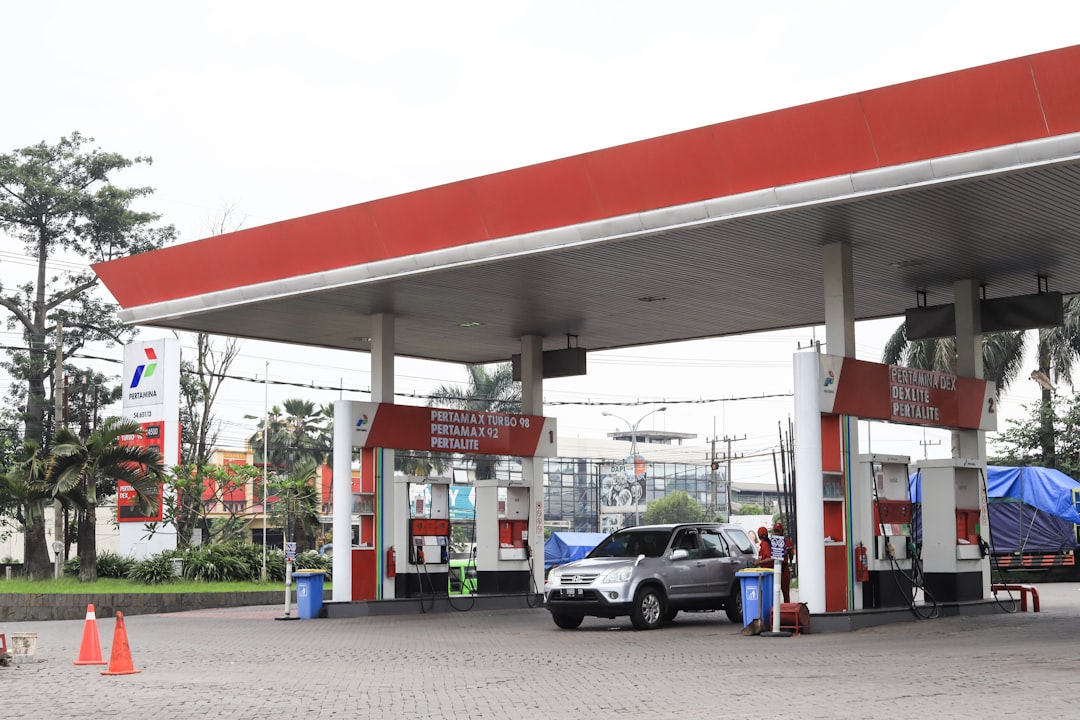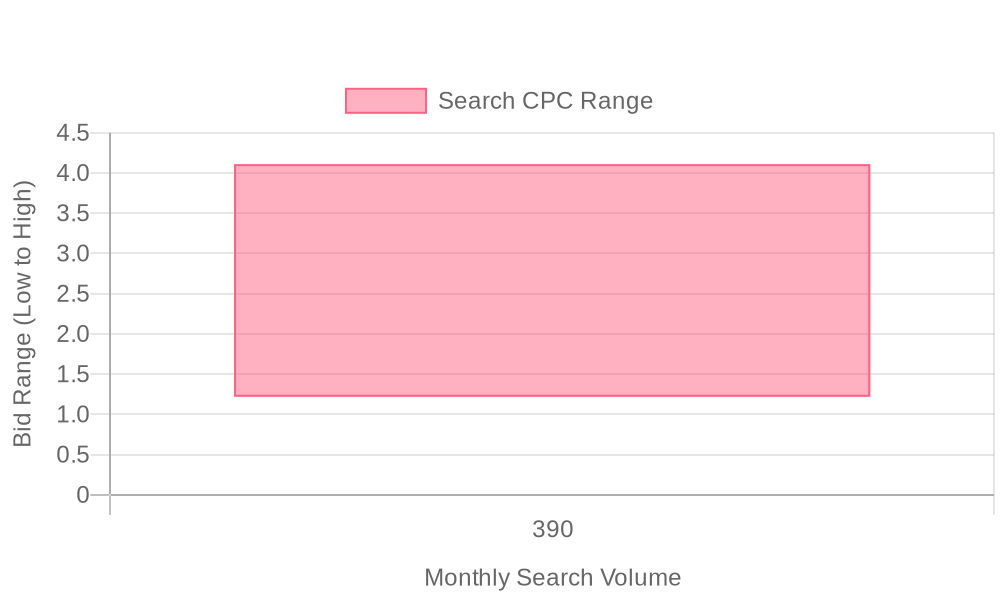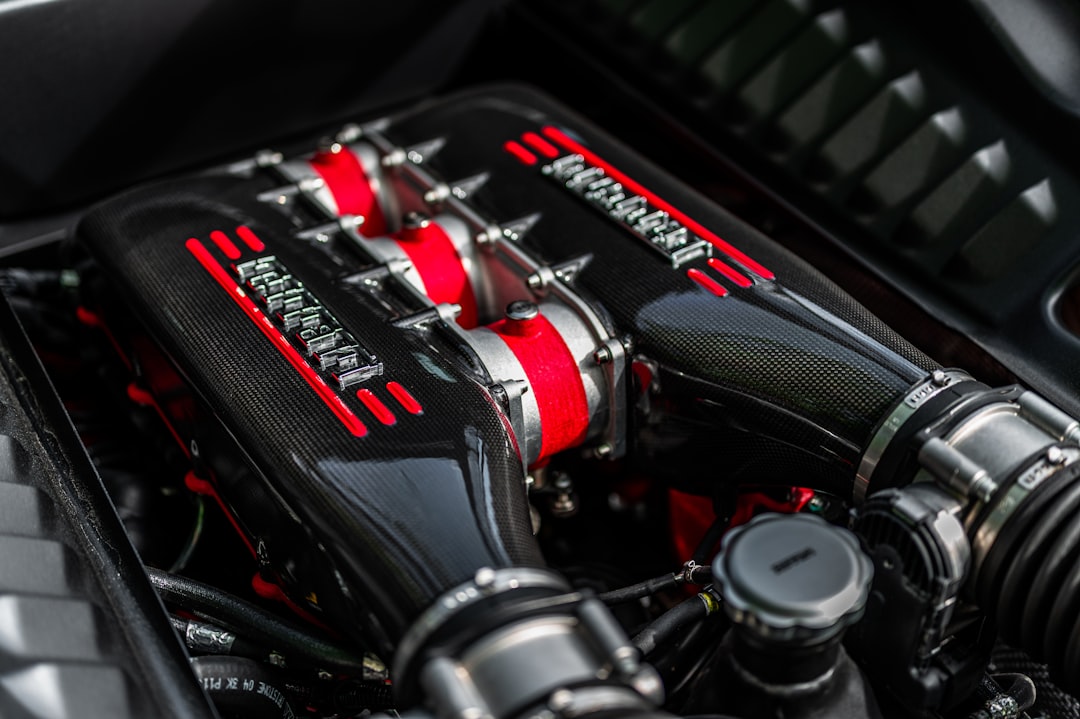
Supercharge your lead generation with a FREE Google Ads audit - no strings attached! See how you can generate more and higher quality leads
Get My Free Google Ads AuditFree consultation

No commitment
Supercharge your lead generation with a FREE LinkedIn Ads audit - no strings attached! See how you can generate more and higher quality leads
Get My Free Google Ads AuditFree consultation

No commitment
Supercharge your lead generation with a FREE Meta Ads audit - no strings attached! See how you can generate more and higher quality leads
Get My Free Google Ads AuditGet My Free LinkedIn Ads AuditGet My Free Meta Ads AuditFree consultation

No commitment
Supercharge your lead generation with a FREE Google Ads audit - no strings attached! See how you can generate more and higher quality leads
Get My Free Google Ads AuditFree consultation

No commitment
In today's digital-first landscape, capturing the attention of automotive customers when they’re actively searching for car oil products is crucial for car oil retailers. Without the means to track these high-value prospects who explore but do not immediately convert, retailers may miss substantial opportunities. Google Ads offers a substantial opportunity to connect with these high-intent buyers, providing tools to identify and engage potential customers—bridging the gap between awareness and conversion within your marketing strategy. However, without a strategic framework, these opportunities might remain untapped. This guide outlines how Google Ads can serve as a pivotal component in your marketing mix, driving visibility and sales in the competitive automotive oil market.

Car oil retailers operate in a fast-moving market where capturing high-intent leads can make a measurable impact on monthly sales. Successful digital marketing for car oil now depends on precise targeting, real-time data, and a strategy that adapts as buyer behavior shifts. For strategies on identifying and converting website visitors, Sona Identification empowers teams to reveal which companies are engaging—even if they don’t fill out a form.
A data-driven Google Ads strategy starts by mapping campaigns to the specific needs and urgency of automotive customers. By integrating CRM insights, retailers can segment audiences by lifecycle stage or service history, ensuring hot leads receive tailored messaging and offers before they cool off. This approach minimizes wasted spend and surfaces high-value prospects who are most likely to convert. Explore practical segmentation tactics with this intent-driven retargeting playbook.
Keyword selection and audience targeting are foundational. Campaigns must align with buyer intent by using high-converting terms such as "synthetic oil change near me" or "bulk motor oil supplier," while excluding irrelevant searchers with negative keywords. Real-time audience segmentation allows marketers to recognize not just anonymous clicks but the actual businesses or segments engaging with ads, enabling on-the-fly budget shifts toward accounts with the strongest purchase signals.
Aligning ad creatives and landing pages is critical for engagement. Each ad group should address the specific technical requirements or pain points of the targeted audience, whether it’s a retail customer seeking a quick oil change or a fleet manager interested in commercial-grade lubricants. Conversion rates improve significantly when landing pages mirror ad copy and feature interactive elements like real-time service availability or inventory feeds. Marketers can use advanced attribution to connect online ad clicks to offline sales, offering a complete view of ROI and informing future campaign optimizations.
ROI-driven optimization tactics are essential to avoid the inefficiencies of generic, one-size-fits-all campaigns. This means customizing bid strategies for different audience segments, using dayparting to reach users during peak decision windows, and leveraging first-party intent signals to create relevant retargeting flows. With unified data, revenue teams can tie every ad dollar to pipeline movement, quickly identifying what drives the highest-value conversions and scaling those tactics across locations and product lines.
A multi-channel approach sustains traction and maximizes visibility. Integrating Google Ads for Car Oil Retailers with email, social, and offline channels ensures consistent touchpoints throughout the customer journey. By syncing enriched audiences and lead data directly into Google Ads and CRM systems, marketers maintain engagement with prospects at every stage, track the full impact of campaigns, and refine their automotive product marketing strategies for long-term growth. If you’re ready to unify your lead data and advertising efforts, get started for free with Sona and see how seamless integration can elevate your results.
Car oil retailers operate in a market defined by urgency, technical specificity, and rapid shifts in consumer demand. Google Ads provides a direct line to customers with immediate, purchase-ready intent, ensuring offers and inventory are front and center when buyers are searching for oil products and services. For a practical look at how digital optimization drives service appointments, see this Valvoline case study.
Reaching a specialized audience is a persistent challenge, as automotive enthusiasts and fleet managers seek precise solutions for specific vehicles or use cases. With Google Ads, retailers tap into granular targeting, capturing both B2C and B2B buyers as they actively evaluate lubricants, oil change kits, and related products. Campaigns can be tailored to reach professionals, DIYers, or commercial accounts at the exact moment of need, minimizing wasted spend and missed connections. Unlock even greater precision with real-time audience segmentation to ensure your messaging reaches the right buyers.
The platform’s real-time nature supports rapid response to spikes in demand—such as promotions for oil changes before travel seasons or urgent replenishment alerts for fleet managers. Retailers can dynamically adjust budgets and creative, ensuring relevant offers are always aligned with current market trends and customer search behavior. These capabilities translate to higher conversion rates and more efficient ad spend, as investments are continuously optimized based on actual buyer activity. Learn more about optimizing marketing investments with accurate revenue attribution.
Perhaps most critically, Google Ads closes the loop between digital engagement and real-world sales. By tracking each interaction from initial click to completed transaction, car oil retailers gain precise ROI measurement and can allocate budgets with confidence. This level of insight supports continuous improvement, enabling marketing teams to double down on what works and eliminate underperforming tactics. To see how you can track every key customer touchpoint, explore buyer journeys.
Expanding into new markets or reaching untapped customer segments is also streamlined. Geo-targeted campaigns extend a retailer’s visibility far beyond their traditional footprint, connecting with decision-makers in new regions who may not have encountered the brand through legacy channels. For retailers pursuing growth, Google Ads unlocks scalable, data-driven automotive product marketing that consistently delivers measurable outcomes. If you’re ready to elevate your marketing and drive measurable results, get started for free with Sona.

To experience how audience intelligence and seamless data activation can supercharge your Google Ads efforts, get started for free with Sona and see real-time results.

Car oil retailing is evolving rapidly with digital-first buyers who expect solutions tailored to specific vehicles, driving styles, and maintenance cycles. Retailers who act on data-driven signals and segment their audience with precision consistently outperform those relying on generic tactics.
Growth in car oil retailing hinges on moving beyond surface-level targeting and leveraging advanced intent data, dynamic audience segmentation, and ongoing competitive analysis. Retailers who invest in unified data and actionable insights will capture emerging demand and establish a sustainable competitive edge. To see how easily you can elevate your marketing strategy, get started for free with Sona.

Car oil retailers thrive when campaigns are engineered around the nuanced needs of their market. Precise audience segmentation ensures every advertising dollar is allocated to prospects most likely to convert, maximizing both short-term wins and long-term customer value. If you want to start building dynamic segments for better targeting, get started for free with Sona.

| Industry | Keyword | Monthly Search Volume | Competition Level | Low Bid | High Bid |
| Car Oil Retailers | car oil shop near me | 390 | MEDIUM | 1.22 | 4.11 |
Effective keyword strategy is foundational for Google Ads for car oil retailers seeking to maximize reach, relevance, and conversions. Precision targeting ensures ad budgets are directed toward prospects with clear purchase intent, minimizing wasted spend and driving higher-quality leads. Marketers must curate keyword lists that reflect both the technical specificity and buying behaviors unique to automotive product marketing. For keyword inspiration, explore this auto repair keyword list to identify high-converting terms for paid search and SEO campaigns.
Further refinement comes from analyzing search query reports and combining them with real-time audience insights. Platforms that surface which businesses are actively visiting your site or clicking ads allow for more agile keyword management and budget allocation. When marketers see which companies are researching “synthetic oil bulk pricing,” they can adjust bids to prioritize high-value accounts and activate tailored messaging. Additionally, as CRM and website behaviors sync in real time, keyword targeting and audience segments automatically evolve, ensuring campaigns remain aligned with in-market buyers at every funnel stage. This approach not only improves cost efficiency but also enables ongoing optimization as new trends and product lines emerge in the digital marketing for car oil sector. If you’re ready to see these insights in action, you can get started for free with Sona and optimize your keyword targeting today.

An effective Google Ads framework for car oil retailers demands a blend of technical precision and data-driven agility. Each stage of the campaign process must be tightly aligned with real-time customer intent, enabling teams to move beyond broad targeting and deliver messaging that resonates with high-value prospects.
This execution blueprint ensures that automotive retailers maximize every advertising dollar, capturing both urgent buyers and loyal repeat customers. By grounding each action in verified audience data and continual feedback loops, marketers create campaigns that not only convert but also scale efficiently across multiple channels and account segments.
Keyword selection is the cornerstone of successful online advertising for car oil retailers. Focusing on buyer intent and local modifiers positions campaigns to intercept the exact moments when customers are searching for solutions like “synthetic oil change near me” or “bulk motor oil supplier.” For inspiration on high-converting search terms, review this comprehensive keyword list for auto repair. Granular keyword lists should cover branded, generic, and product-specific queries, while negative keywords filter out irrelevant traffic such as DIY or information-only searches.
Modern B2B teams take this further by integrating website visitor identification into the keyword research process. Instead of relying solely on search volume and CPC estimates, marketers can pinpoint which companies are landing on their pages and which keywords are driving these visits. This intelligence supports ongoing keyword refinement, ensuring that high-value commercial accounts are prioritized and budget is allocated where it can produce the greatest impact. As a result, car oil retailers avoid wasted spend and generate higher-quality leads from their Google Ads investments.
Ad copy must address pain points specific to automotive buyers while leveraging incentives that move prospects to act. Messages that highlight speed, convenience, and technical expertise—such as “15-minute oil change by certified professionals” or “Fleet discounts for commercial accounts”—resonate with both retail and B2B audiences. Tailoring copy to the customer’s journey stage is essential: top-of-funnel ads educate, mid-funnel ads compare options, and bottom-funnel ads drive urgency with exclusive offers.
Dynamic audience segmentation enables marketers to automate this personalization at scale. As leads move through the funnel, ad messaging can update in real time, ensuring that returning visitors see content relevant to their latest interactions. For industry-specific messaging strategies, see this case study on Valvoline’s digital optimization. This approach not only improves conversion rates but also deepens engagement, as each ad impression reflects the prospect’s current needs and buying signals.
Landing pages must deliver a seamless transition from ad to action, aligning headlines, visuals, and calls to action with the user’s search intent and ad copy. For car oil retailers, this means providing service-specific content, transparent pricing, and clear options for scheduling or purchasing. Embedding local reviews, technician certifications, and real-time inventory further boosts credibility and trust, especially for high-ticket B2B transactions or urgent service requests.
Advanced conversion tracking transforms these landing pages into powerful revenue engines. By capturing both online and offline actions—such as booked appointments, phone calls, or in-person purchases—revenue teams can attribute success across the entire customer journey. For a detailed guide on optimizing landing pages and tracking performance, explore strategies for auto repair Google Ads. This level of insight drives smarter optimization, allowing marketers to double down on landing page variations and experiences that produce measurable sales lift across both consumer and commercial segments.
Continuous campaign optimization is driven by rigorous testing of headlines, images, and calls to action. For car oil retailers, small tweaks—such as adding a “Book Now” button or rotating seasonal offers—can deliver measurable improvements in engagement and conversion rates. The key is to prioritize tests based on in-market behavior, shifting budget toward high-converting accounts and away from segments that show low intent.
When revenue teams unify their campaign, CRM, and offline sales data, optimization becomes exponentially more effective. Automated audience sync ensures that high-value leads and repeat buyers are always included in remarketing lists, while real-time conversion tracking highlights which ads and keywords are driving actual revenue. For step-by-step tactics on campaign improvement, this PPC and Google Ads strategy offers additional frameworks.
Expanding your brand’s presence in the car oil market requires a blend of tactical digital advertising and data-driven customer engagement. Strong brand reach results from cohesive strategies that combine education, personalization, and third-party validation.
In conclusion, leveraging Google Ads effectively can transform your car oil retail business by enhancing visibility and driving sales. By focusing on tailored advertising strategies, you can ensure that your products reach the right audience, leading to increased engagement and revenue.
Throughout this article, we explored the unique challenges faced by car oil retailers in the digital advertising space. We discussed key strategies, such as targeting the right keywords, optimizing ad copy, and leveraging customer data to maximize your Google Ads campaigns. These insights are designed to help you navigate the complexities of online advertising and achieve measurable results.
Imagine a future where your Google Ads not only reach but resonate with your target customers, leading to improved brand awareness and loyalty. By implementing the strategies discussed, you can position your business for sustained growth and success in the competitive automotive oil market.
To take the next step in transforming your advertising approach, start for free
The best strategies include precise targeting and real-time data utilization to capture high-intent leads, integrating CRM insights for audience segmentation, and using high-converting keywords such as 'synthetic oil change near me.'
Optimize by aligning ad creatives with landing pages, using data-driven optimizations like dayparting, customizing bid strategies for different audience segments, and leveraging intent signals for relevant retargeting flows.
Allocate budget based on high-value prospects identified through audience segmentation and real-time intent signals, ensuring funds are directed towards accounts with the strongest purchase signals.
Targeting options include keyword selection with high-converting terms, audience segmentation by lifecycle stage, and real-time audience recognition to focus on businesses or segments engaging with your ads.
Measure success by tracking interactions from initial clicks to completed transactions, using advanced attribution to connect online ad clicks to offline sales, and analyzing ROI based on precise buyer activity.
Join results-focused teams combining Sona Platform automation with advanced Google Ads strategies to scale lead generation

Connect your existing CRM

Free Account Enrichment

No setup fees
No commitment required

Free consultation

Get a custom Google Ads roadmap for your business
Join results-focused teams combining Sona Platform automation with advanced Meta Ads strategies to scale lead generation

Connect your existing CRM

Free Account Enrichment

No setup fees
No commitment required

Free consultation

Get a custom Google Ads roadmap for your business
Join results-focused teams combining Sona Platform automation with advanced LinkedIn Ads strategies to scale lead generation

Connect your existing CRM

Free Account Enrichment

No setup fees
No commitment required

Free consultation

Get a custom Google Ads roadmap for your business
Join results-focused teams using Sona Platform automation to activate unified sales and marketing data, maximize ROI on marketing investments, and drive measurable growth

Connect your existing CRM

Free Account Enrichment

No setup fees
No commitment required

Free consultation

Get a custom Google Ads roadmap for your business
Over 500+ auto detailing businesses trust our platform to grow their revenue
Join results-focused teams using Sona Platform automation to activate unified sales and marketing data, maximize ROI on marketing investments, and drive measurable growth

Connect your existing CRM

Free Account Enrichment

No setup fees
No commitment required

Free consultation

Get a custom Google Ads roadmap for your business
Over 500+ auto detailing businesses trust our platform to grow their revenue
Join results-focused teams using Sona Platform automation to activate unified sales and marketing data, maximize ROI on marketing investments, and drive measurable growth

Connect your existing CRM

Free Account Enrichment

No setup fees
No commitment required

Free consultation

Get a custom Google Ads roadmap for your business
Over 500+ auto detailing businesses trust our platform to grow their revenue
Our team of experts can implement your Google Ads campaigns, then show you how Sona helps you manage exceptional campaign performance and sales.
Schedule your FREE 15-minute strategy sessionOur team of experts can implement your Meta Ads campaigns, then show you how Sona helps you manage exceptional campaign performance and sales.
Schedule your FREE 15-minute strategy sessionOur team of experts can implement your LinkedIn Ads campaigns, then show you how Sona helps you manage exceptional campaign performance and sales.
Schedule your FREE 15-minute strategy sessionOur team of experts can help improve your demand generation strategy, and can show you how advanced attribution and data activation can help you realize more opportunities and improve sales performance.
Schedule your FREE 30-minute strategy sessionOur team of experts can help improve your demand generation strategy, and can show you how advanced attribution and data activation can help you realize more opportunities and improve sales performance.
Schedule your FREE 30-minute strategy sessionOur team of experts can help improve your demand generation strategy, and can show you how advanced attribution and data activation can help you realize more opportunities and improve sales performance.
Schedule your FREE 30-minute strategy sessionOur team of experts can help improve your demand generation strategy, and can show you how advanced attribution and data activation can help you realize more opportunities and improve sales performance.
Schedule your FREE 30-minute strategy session





Launch campaigns that generate qualified leads in 30 days or less.
